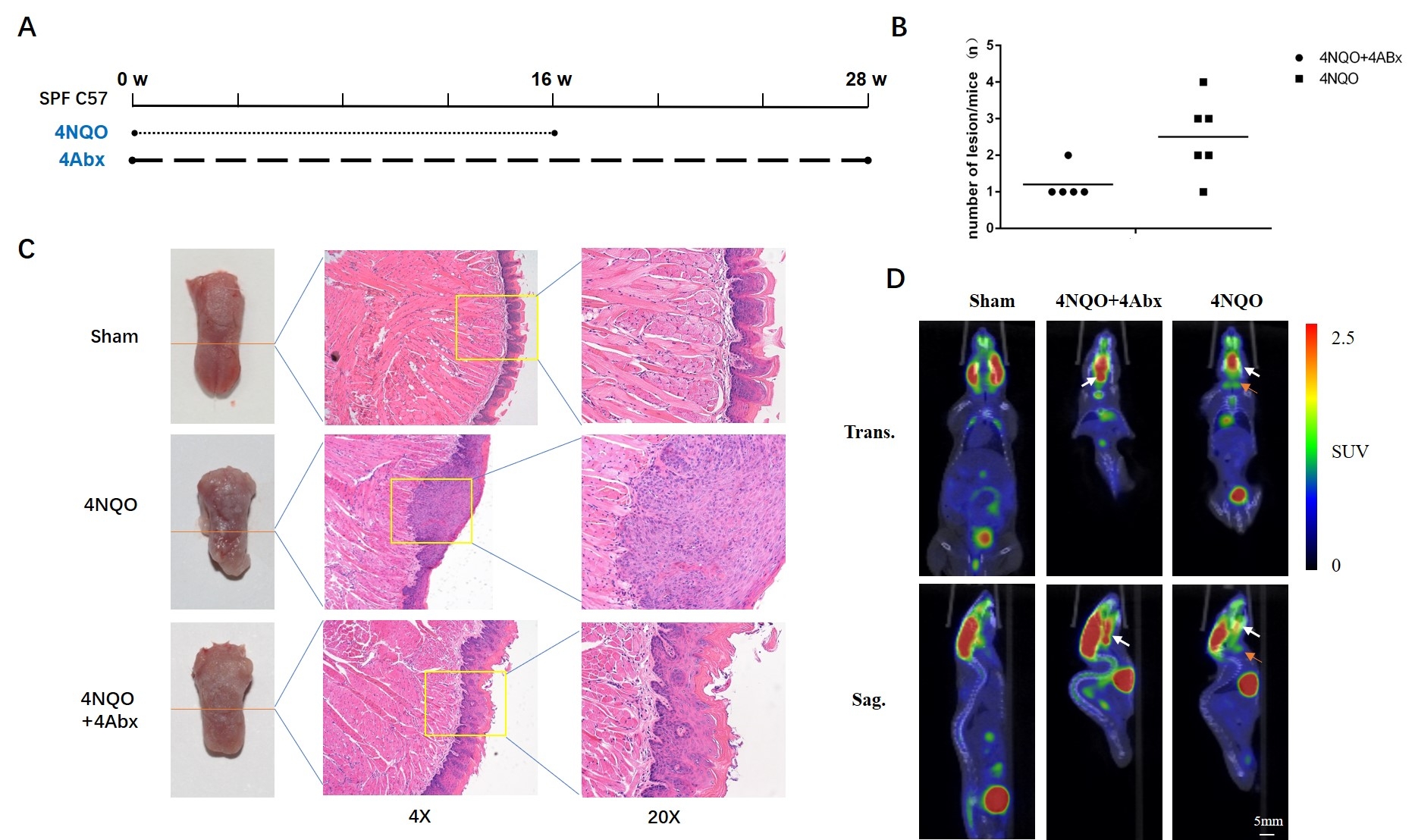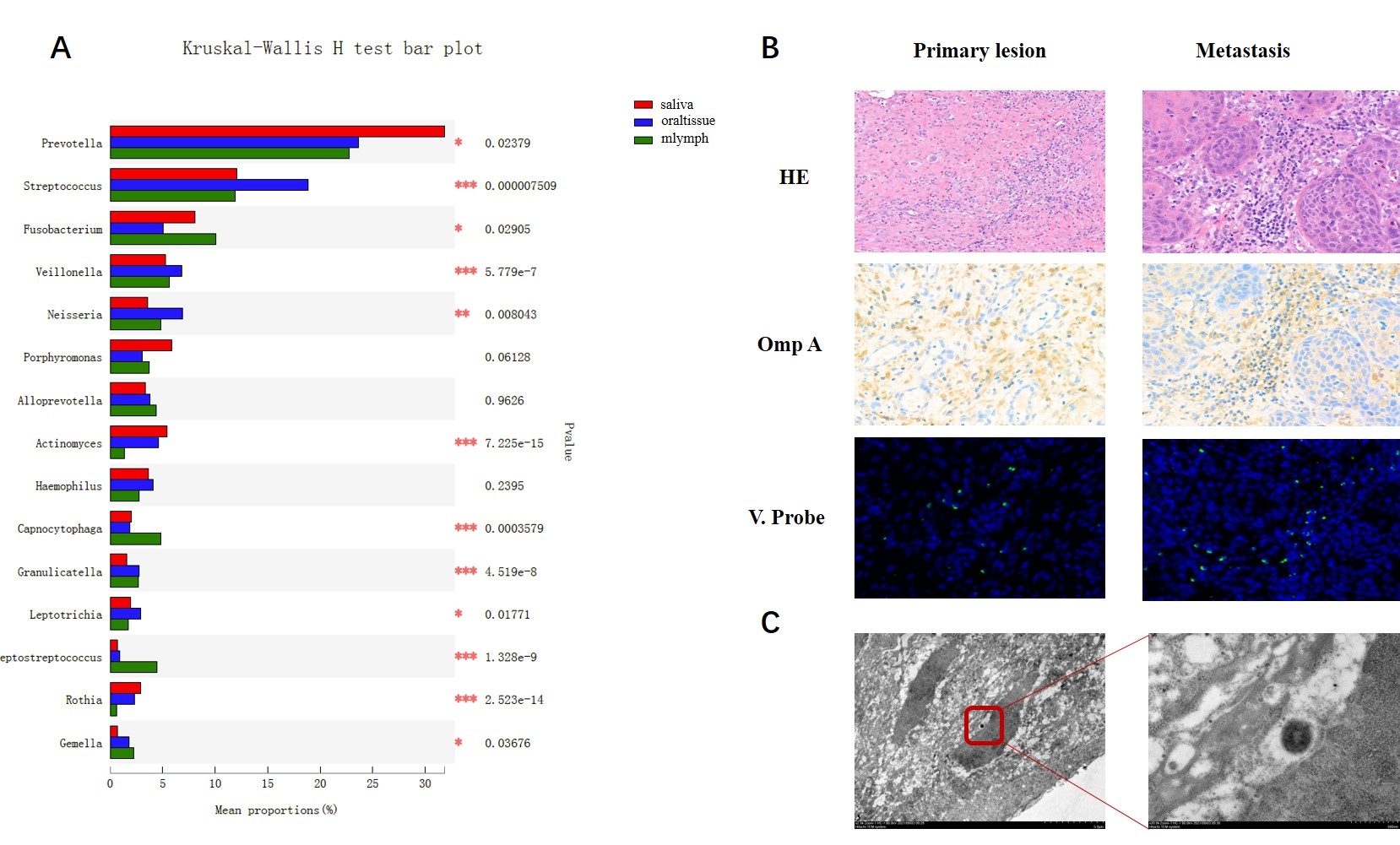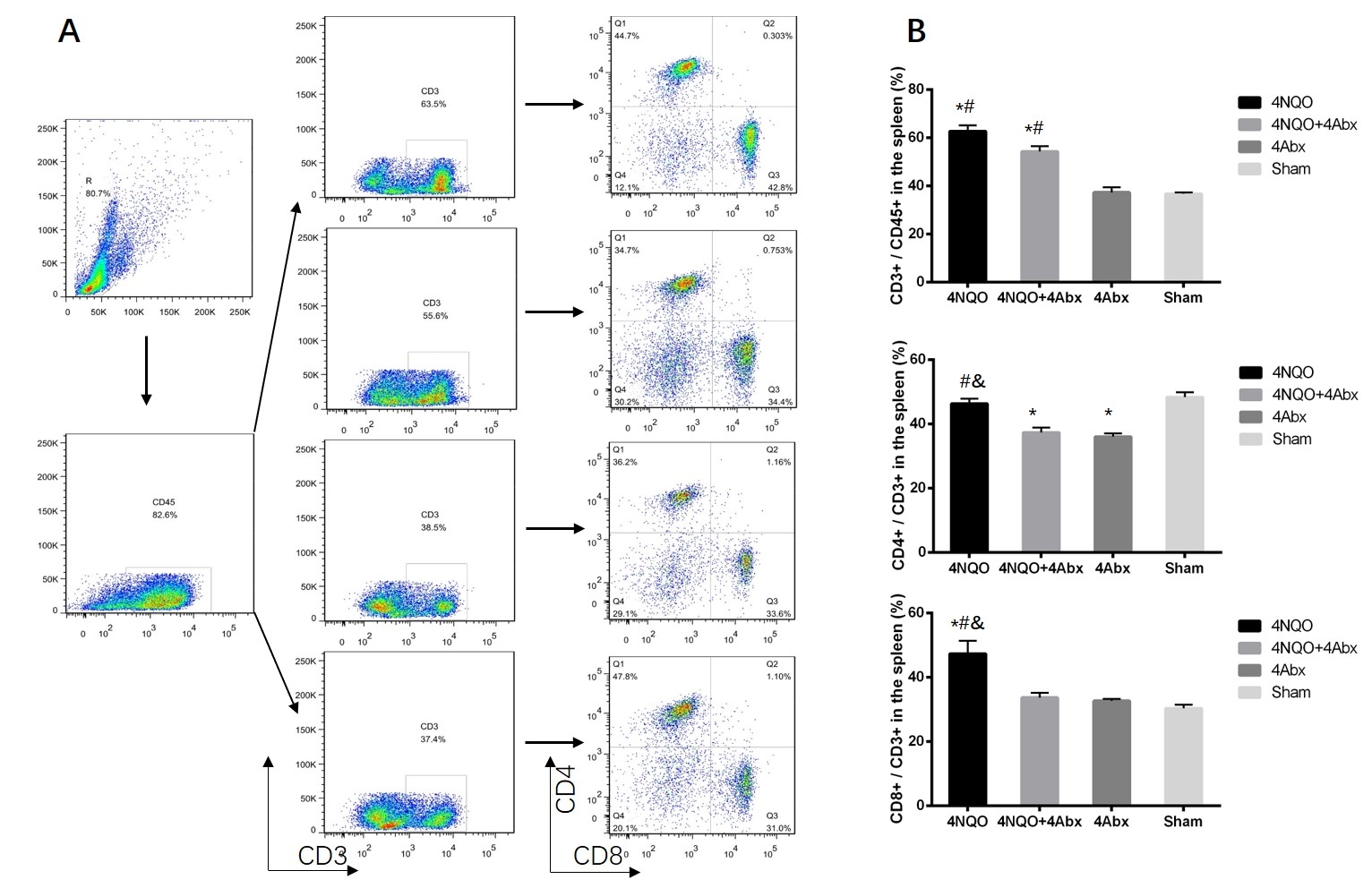IADR Abstract Archives
Oral Specific Microbiota Involves in Lymph Node Metastasis and Progression of OSCC
Objectives: Oral cancer is prone to regional lymph node metastasis, resulting in poor treatment results. Recent reports found that microorganisms involves in the tumor microenvironment. In this study, we hypothesize that oral-specific microorganisms are involved in the progress of tumor and the metastasis of oral squamous cell carcinoma regional lymph nodes.
Methods: We established a C57 mice model of oral squamous cell carcinoma by 4-NQO inducement. The mice were divided into 3 groups: Control group, 4NQO group (4NQO oral administration ) and 4NQO+Antibiotic group (4Abx and 4NQO oral administration). After 16 weeks inducement, all the mice were feed for another 12 weeks and then sacrificed. The small animal PET-CT examination and gross observation of tumor formation were conducted. The immune microenvironment changes were further analyzed by the flow cytometry. 16S rRNA sequencing analysis was performed to analyze the microbial changes in the samples from oral salivary, tumor primary tumor, and metastases.
Results: The number and local size of tumors in the 4NQO group were significantly higher than those in the 4NQO+Antibiotic group. 16S rRNA sequencing analysis indicated that in the 4NQO group, specific enriched microbial colonies existed in the primary tumor compared with the oral saliva environment, and were further enriched in the metastatic lymph nodes. Bacterial histochemical staining, FISH staining, and sequencing results were consistent with histological observation. Flow cytometry analysis showed that the proportion of CD8+ T cells in the 4NQO group decreased. The use of antibiotics did not cause morphological changes in the liver and kidney.
Conclusions: There are specific microorganisms in the progression of oral cancer, which participate in the local tumor microenvironment and promote the regional lymph node metastasis of oral squamous cell carcinoma.
Methods: We established a C57 mice model of oral squamous cell carcinoma by 4-NQO inducement. The mice were divided into 3 groups: Control group, 4NQO group (4NQO oral administration ) and 4NQO+Antibiotic group (4Abx and 4NQO oral administration). After 16 weeks inducement, all the mice were feed for another 12 weeks and then sacrificed. The small animal PET-CT examination and gross observation of tumor formation were conducted. The immune microenvironment changes were further analyzed by the flow cytometry. 16S rRNA sequencing analysis was performed to analyze the microbial changes in the samples from oral salivary, tumor primary tumor, and metastases.
Results: The number and local size of tumors in the 4NQO group were significantly higher than those in the 4NQO+Antibiotic group. 16S rRNA sequencing analysis indicated that in the 4NQO group, specific enriched microbial colonies existed in the primary tumor compared with the oral saliva environment, and were further enriched in the metastatic lymph nodes. Bacterial histochemical staining, FISH staining, and sequencing results were consistent with histological observation. Flow cytometry analysis showed that the proportion of CD8+ T cells in the 4NQO group decreased. The use of antibiotics did not cause morphological changes in the liver and kidney.
Conclusions: There are specific microorganisms in the progression of oral cancer, which participate in the local tumor microenvironment and promote the regional lymph node metastasis of oral squamous cell carcinoma.



